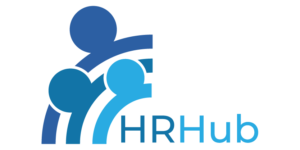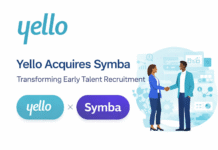Artificial intelligence (AI) is transforming how we work, communicate, and solve problems. From drafting emails to generating reports, AI tools like ChatGPT provide unmatched efficiency and convenience. However, while AI enhances productivity, experts warn that over-reliance may have unintended consequences for our cognitive abilities. Could our growing dependence on AI be subtly diminishing our brainpower?
Understanding Cognitive Offloading
Cognitive offloading occurs when we delegate mental tasks to external tools, such as AI or smartphones. While this approach can save time and reduce effort, it may also come at the cost of mental engagement. For instance, using AI to generate content or solve problems reduces the brain’s active involvement, potentially weakening critical thinking and problem-solving skills over time.
A study conducted by MIT’s Media Lab found that participants using AI-based tools like ChatGPT displayed lower brain activity than those performing tasks independently using traditional methods like Google Search. This finding indicates that although AI increases efficiency, it might also reduce cognitive stimulation, essential for maintaining sharp mental faculties.
Effects on Memory and Analytical Thinking
Memory and critical thinking thrive on regular mental exercise. Similar to how muscles strengthen through physical activity, neural pathways are reinforced when we actively engage in problem-solving, analysis, and recall. By outsourcing tasks to AI, we may inadvertently weaken these pathways.
For example:
- Relying on AI for drafting emails or summarizing information reduces opportunities for memory retention.
- Using AI to make decisions can limit the development of independent analytical skills.
- Frequent dependency may diminish problem-solving capabilities over time.
Research suggests that this phenomenon mirrors the way smartphone reliance has diminished our ability to remember basic information, such as phone numbers or directions. AI’s convenience is undeniable, but excessive reliance may compromise cognitive growth.
Emotional Intelligence and Social Skills at Risk
AI’s impact is not limited to cognition. Psychologists have identified a risk called “relational diabetes,” where excessive dependence on technology diminishes interpersonal skills. In workplaces, this can manifest as reduced empathy, weaker collaboration, and decreased ability to navigate complex social interactions.
Young professionals, in particular, may be vulnerable. Over-reliance on AI for guidance and task completion may hinder the development of essential soft skills such as:
- Conflict resolution
- Decision-making under uncertainty
- Team engagement and leadership
Balancing AI Use in the Workplace
AI offers significant benefits in professional settings. For repetitive, time-consuming tasks, it saves time and enhances productivity. However, using AI passively for tasks that require analysis or judgment can reduce cognitive engagement.
Businesses should implement strategies to balance AI use and human effort:
- Task segmentation: Reserve cognitively demanding tasks for human effort and use AI for refinement.
- Critical thinking exercises: Encourage employees to analyze problems independently before consulting AI.
- Team collaboration: Promote face-to-face meetings, brainstorming, and discussions without AI assistance.
- Continuous learning: Provide workshops and training sessions to stimulate cognitive growth.
- Mindful AI adoption: Set guidelines for when AI should be used to complement, not replace, human thinking.
Practical Steps to Protect Brainpower
Preserving cognitive health doesn’t mean rejecting AI entirely, it’s about using it thoughtfully:
- Intentional engagement: Draft ideas, plans, or strategies manually before seeking AI input.
- Memory exercises: Regularly perform recall and problem-solving activities without AI assistance.
- Social interaction: Maintain active communication, team collaboration, and networking without over-relying on digital tools.
- Structured learning: Participate in exercises and workshops that challenge critical thinking and analytical skills.
- Balanced tech use: Avoid outsourcing trivial tasks to AI, preserving mental effort for meaningful activities.
By incorporating these strategies, professionals can maintain mental sharpness while leveraging AI for productivity gains.
The Future of AI and Human Intelligence
AI is a powerful enabler when used strategically. Its ability to streamline workflows, automate repetitive tasks, and analyze complex data can free humans to focus on creativity, strategy, and decision-making. However, moderation is essential. Over-reliance on AI risks dulling essential cognitive skills that define human intelligence.
Ultimately, the goal is to ensure AI complements human effort rather than replaces it. Professionals and organizations that strike this balance will preserve cognitive health while maximizing the benefits of AI. The challenge is not simply technological adoption but the intentional integration of AI in ways that enhance rather than erode mental capabilities.
By fostering environments where technology empowers human thought instead of substituting it, businesses can safeguard productivity, critical thinking, and innovation for the future.
I hope you find the above content helpful. For more such informative content, please visit HR Global Hub.











